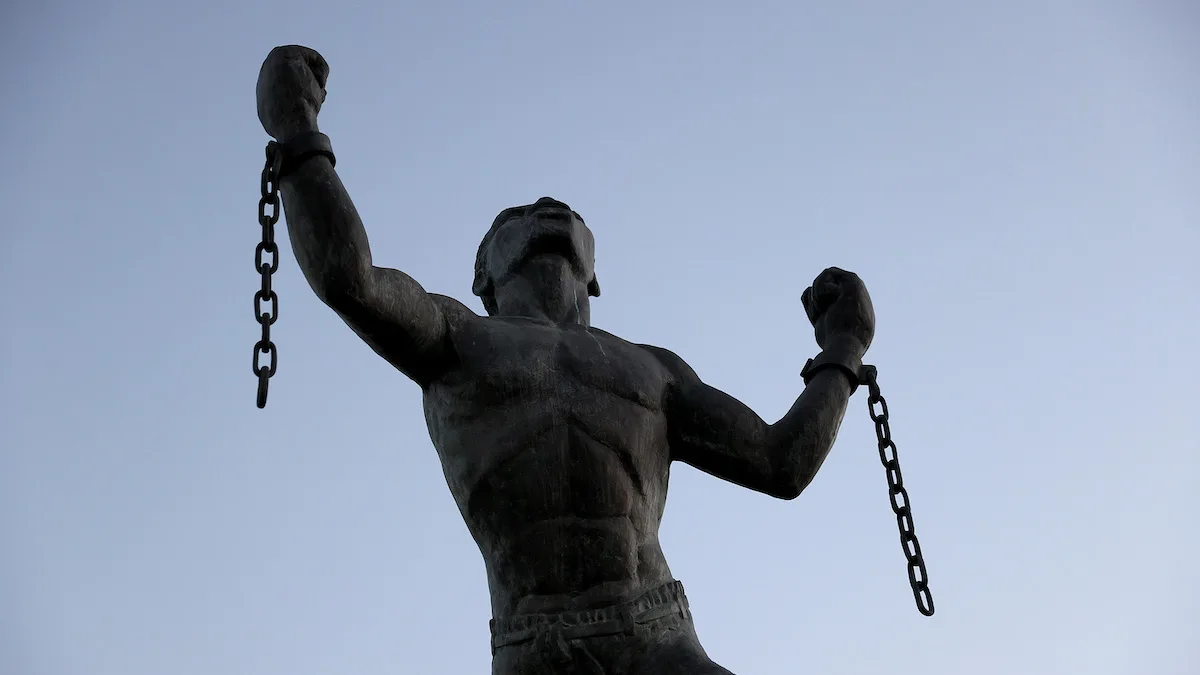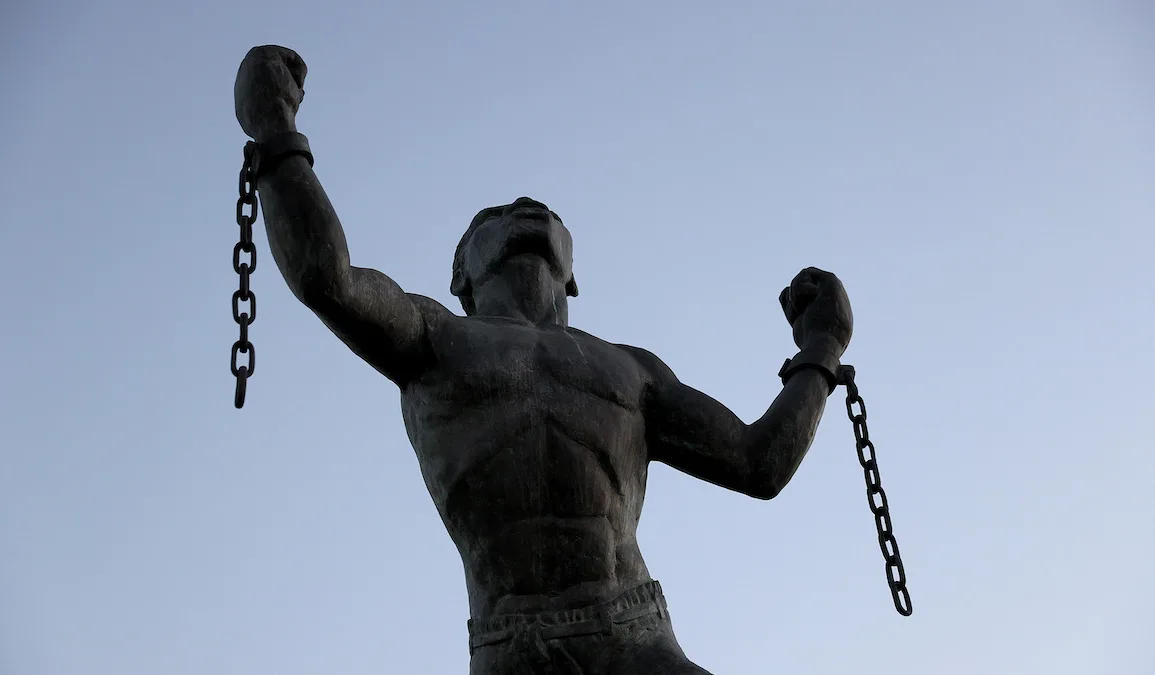
By RW Johnson
In July 2023 African and Caribbean nations met in Bridgetown, Barbados, to launch an “intercontinental campaign” for reparations for slavery. As Hilary Beckles, head of the CARICOM (the Caribbean Community and Common Market) reparations commission put it, “We have to clean up this mess to allow humanity to function”. Barbados, which ditched the Queen as head of state in 2021, has been leading the campaign in the person of Prime Minister, Mia Mottley. Ms. Motley reckons that Barbados alone is owed $4.9 trillion and that Britain owed $24 trillion (eight times its GDP) to a number of states. Ms. Motley displayed great confidence about these sums, though she said that she didn’t expect them to be paid all at once. Indeed, she didn’t think these numbers were all that big: “These numbers, if taken out of context, can appear to be staggering. But in relation to the total wealth accumulated over a period of time, the numbers are actually minuscule”.
___STEADY_PAYWALL___
On being told that the Church of England had decided to set up a GDP 100 million fund as a reparation for its historic involvement in the slave trade, Ms Motley welcomed the move but was disturbed that the Church of England had acted unilaterally. It should, apparently, have “engaged with” her and negotiated the figure. The AU and CARICOM have worked out a ten point programme, setting reparations targets for all the leading European nations and also demanding full apologies from them all..The call has been taken up by Ghana’s President Nana Akufo-Addo, who wants similar compensation for African countries, claiming that “our progress, economically, culturally and psychologically” was stifled by the slave trade.
There are a number of problems with this. Slavery has been one of the most universal human institutions. Why not reparations for Israel from Egypt for the Biblical enslavement of the Israelites? Why not reparations from Italy to Britain for Britons enslaved by the Romans or reparations for Russia for the enslavement of Russians by the Mongols? Or again, European travellers to Africa in the 17th century returned with stories of cannibalism, tribal warfare and slave trading aplenty. Not much sign of progress – and this was why the notion of slave trading from West Africa occurred to remedy the chronic shortage of labour on Caribbean plantations. Moreover, there were already a number of African slave states. Indeed, the ancient empires of Ghana and Mali both traded slaves across the Sahara to North Africa while Benin traded slaves all the way to Europe. The great Fulani chiefdoms regularly raided their neighbours for captives who were enslaved. (Indeed, when I toured the Fulani area of the Fouta Djalon in Guinea in 1968 the hut-slaves there were still known as “captifs”.)
And this was how the West African slave trade worked. European traders would make deals with chiefs at the coast who would then raid into the interior, returning with hundreds of slaves who would then be loaded onto ships and taken to the New World. That is, there was African complicity in the trade from the very start. Anyone who doubts that should view Bernard Giraudeau’s majestic Les Caprices d’une Fleuve (1996) about the huge slave trade in Senegal in the 1780s, seventy years before Senegal became a French colony.
It also has to be recognised that Britain abolished the slave trade in 1807 and slavery itself in 1834. From 1807 on it used the power of the Royal Navy to put a stop to the African trade, intercepting slave ships and freeing the slaves held on them.. Moreover, European countries exercised strong pressure for the abolition of slavery elsewhere. It is worth recording the dates of slavery’s abolition – Cameroun (1902), Mali (1903), Thailand (1912), Malaya (1915), Tanganyika (1919), Morocco (1922), Sudan and Turkey (1924), Sierra Leone (1928), Iran (1929), Ethiopia and Northern Nigeria (1935). (In the case of most of the African states mentioned abolition was actually the decision of the colonial authorities – though not, of course, in Ethiopia, which was independent.) The last country in the world to abolish slavery was an African state – Mauretania in 1981, though it is an open secret that the phenomenon continues discreetly there. The fact that slavery continued in many parts of Africa for more than a century after British abolition makes it seem rather peculiar that the AU and CARICOM make Britain their principal target in their quest for reparations.
The AU and CARICOM quite specifically say that they want reparations from all the European nations.. But this too is extremely strange. European countries carried out the slave trade for about three hundred years in all, but Muslim slave traders raided Africa for slaves for over thirteen hundred years and yet they go unmentioned by the AU and CARICOM.. In all nearly ten million Africans were thus enslaved. The slaves were generally sent to North Africa, Arabia, the Ottoman Empire (i.e. Turkey) and were to be found throughout the Mediterranean and the Middle East. Slavery was, indeed, a standard part of Muslim society for most of its existence. Indeed, Muslim merchants also carried out an enormous slave trade based upon the enslavement of the Slav peoples (whose very name reflects that status).
In addition, of course, Muslims from North Africa’s Barbary Coast frequently raided Europe (and even the West of England) for white, Christian slaves. It is estimated that between 1530 and 1780 over a million European Christians were thus enslaved. In particular Spain and Italy lived in some terror of these slave raids with the result that long stretches of the coastlines of both countries were deserted for many years as the population sought to put itself beyond the reach of these Barbary pirates.
After 1815 the European powers agreed to suppress this trade. Inevitably, much of the burden of this task fell upon the Royal Navy but it was only with the French colonisation of Algeria in 1830 that the trade stopped. Note that colonialism and slavery are often mentioned in the same breath but in this instance (and in many others) colonialism put a stop to slavery. Indeed, the need to suppress slavery was frequently cited as a motive for nineteenth century colonisation – the idea being that slaving had been mere pillage and instead these countries needed to be developed.
One of the reasons why the Muslim slave trade from East Africa is thus frequently overlooked is that while the Atlantic slave trade left large black populations throughout the Americas and Caribbean, there was (and is) no corresponding black population settled in the Middle East or Turkey. The reason is simple: these societies did not want their slaves to breed and so all male slaves were castrated.(Muslim slave routes always included the setting up of special “castration centres”.) This in turn, of course, necessitated the continual replenishment of the slave population by further raiding and trading. These slaves, like their Caribbean equivalents, were often used for work on sugar plantations but also in salt mines, to clear marshes and perform other harsh and uncongenial work. This East African slave trade was suppressed by the Royal Navy in the 1880s, though elements of it continued until the 1960s. Indeed, it is estimated that in various parts of the world some 40 million people live in slavery today.
All of which suggests that the attempt by Ms Motley and President Akufo-Addo to concentrate attention simply on the Atlantic slave trade is somewhat misguided. Ms Motley draws great inspiration and confidence from the recent visit to Barbados by King Charles, who expressed “great personal sorrow about the suffering of so many”.. She is sure, she says, that the British government will be guided by their King’s emotions. This seems unlikely and it has to be noted that the King was careful to make no apology, let alone suggest any support for reparations. In the House of Commons the Labour MP, Bell Ribeiro-Addy (who is of Ghanaian extraction and chairs the All Party Committee on Afrikan Reparations), asked the prime minister, Rishi Sunak, “to offer a full and meaningful apology for our country’s role in slavery and colonialism, and commit to reparatory justice”. Sunak responded “No.” and said today’s task was to build an inclusive and tolerant society for all..
Ms Ribeiro-Addy was made Shadow Immigration Minister by Jeremy Corbyn but was immediately demoted by Sir Keir Starmer when he became Labour’s Leader. This rather suggests that policy on this matter may not change under a Labour government. Sir Tony Blair formally apologised for slavery in the House in 2006 and Labour stands by that but has no policy on reparations. Given the immense pressure of expectations that a future Labour government is likely to face and their commitment to restrain spending it seems unlikely that Ms Motley is going to see the $24 trillion from Britain any time soon.
R.W. Johnson


 RW Johnson: Slavery reparation calls – sorting fact from revisionary fiction
RW Johnson: Slavery reparation calls – sorting fact from revisionary fiction